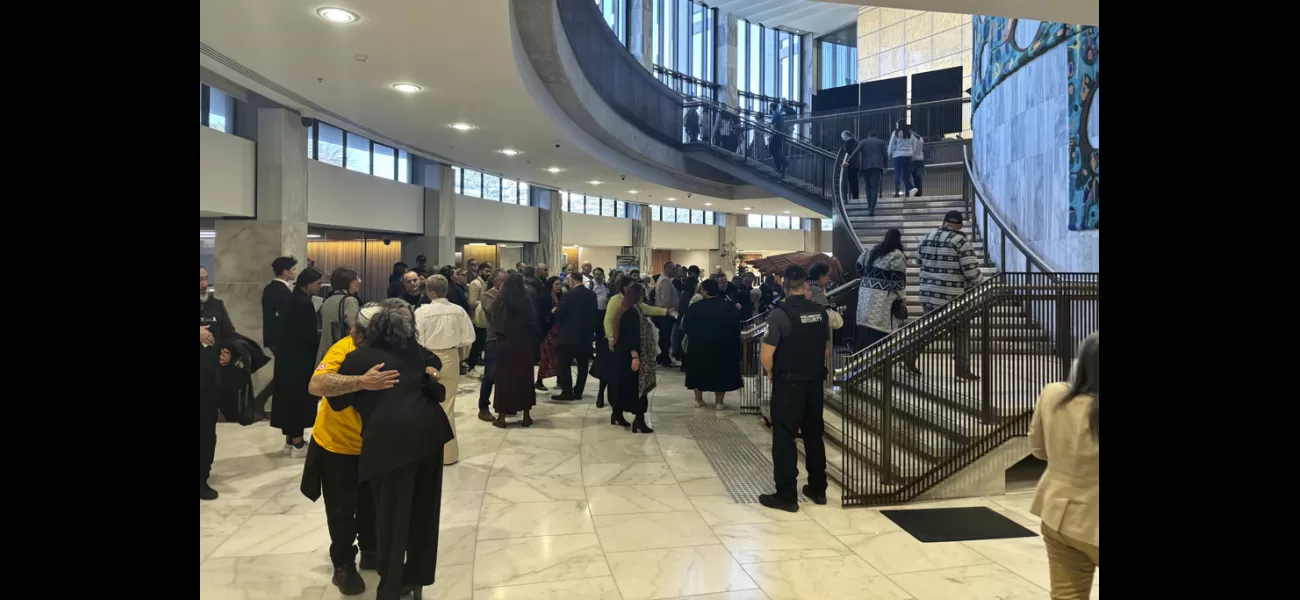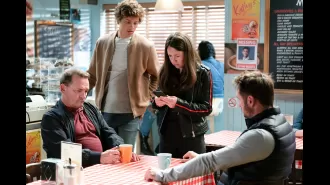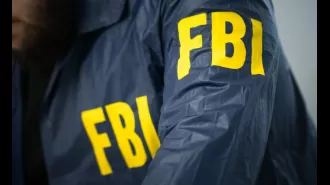200,000 people in New Zealand were victims of abuse, deemed a "national disgrace" by an inquiry.
NZ's investigation into long-term mistreatment of minors and vulnerable individuals issued a scathing final report on Wednesday.
July 25th 2024.

New Zealand's independent inquiry into decades of abuse of children and vulnerable adults has released a scathing final report, revealing the failure of state agencies and churches to prevent, stop, or even acknowledge the mistreatment of those under their care. The report, which was released on Wednesday, highlighted the unimaginable scale of the abuse, with an estimated 200,000 people, including many Māori, New Zealand's Indigenous people, subjected to physical, sexual, verbal, or psychological abuse over a period of seven decades.
In response to the findings, the government has admitted for the first time that the treatment of some children in a notorious state-run hospital can be considered torture, and has pledged to apologize to all those who have suffered abuse in state, foster, or religious care since 1950. However, the Prime Minister, Christopher Luxon, has stated that it is too early to determine the amount of compensation that will be paid, or to promise that officials who were involved in covering up the abuse will lose their jobs. He also expressed shock at the findings and announced that a formal apology will be issued to survivors on November 12.
Luxon acknowledged that New Zealand has long prided itself on being a safe and fair country, but the reality is that it is not as exceptional as it thought. The Royal Commission, which is the highest level of inquiry in the country, has spent six years investigating the abuse and its findings have revealed a national disgrace. Out of 650,000 children and vulnerable adults who were in state, foster, or church care between 1950 and 2019, nearly one third were subjected to various forms of abuse, and many more were neglected or exploited. However, these figures are likely to be even higher, as many complaints were disregarded and records were either lost or destroyed.
The report further states that these gross violations took place at a time when New Zealand was promoting itself as a bastion of human rights and a safe place for children to grow up in loving families. The inquiry heads, using both the Māori and English names for the country, warned that if the injustice is not addressed, it will remain a stain on the nation's character forever. The release of the report was met with emotional scenes in Parliament, as hundreds of survivors and their supporters filled the public gallery and sang a Māori song.
The report also criticized senior figures in government and faith institutions for continuing to cover up and excuse the abuse during public hearings. It stated that many of the worst episodes were common knowledge, but officials at the time were either unaware or indifferent to the protection of children, instead prioritizing the reputation of their institutions and abusers. The inquiry has made 138 recommendations for changes in New Zealand's laws, society, and government, including swift redress for survivors and creating offices to prosecute abusers and provide compensation. However, few of the interim recommendations from 2021 have been implemented.
The new recommendations also include seeking apologies from state and church leaders, as well as the Pope, and renaming streets and monuments dedicated to abusers. The report also suggested reforms to the criminal and civil law, the child welfare system, and the search for unmarked graves at psychiatric facilities. The inquiry, which interviewed nearly 2,500 survivors of abuse, revealed that children were often removed from their families unfairly and without justification, and that the majority of New Zealand's criminal gang members and prisoners have spent time in care.
Similar to Australia and Canada, Indigenous children were disproportionately targeted for placement in harsher facilities. The report highlighted the fact that despite making up less than 20 percent of the population during the period examined, the majority of children in care were Māori. The Catholic Church, in particular, was singled out for scrutiny, as a report produced for the inquiry revealed that 42 percent of those in faith-based care experienced abuse. The Catholic Church acknowledged that accusations had been made against 14 percent of its clergy in New Zealand during the time covered by the inquiry. One of the recommendations called for an investigation into priests from a Catholic order who were sent to Papua New Guinea to escape accusations of abuse in Australia and New Zealand.
In response to the report, senior Catholic figures in New Zealand stated that they would carefully read and review its contents. The inquiry also found that the average cost of abuse in a survivor's lifetime is 857,000 New Zealand dollars, with the majority of this amount being attributed to the survivor's suffering and lost opportunities. However, under New Zealand law, those who have been abused have had limited options for seeking compensation. Some have accepted small out-of-court settlements, while others have been denied justice. The government's rejection of the need for an inquiry as recently as 2015, and the argument that abuse was not widespread within government agencies, have further added to the nationwide shame.
Survivor and advocate Tu Chapman stressed the need for immediate action on redress to show that the government is committed to addressing the findings. She emphasized that any further delays would only worsen the situation for survivors who have been waiting for justice for decades. Opposition leader Chris Hipkins, who commissioned the inquiry while his party was in power, described the episode as a nationwide intergenerational shame that is far from over. Debbie Ngarewa-Packer, an opposition lawmaker and co-leader of the Māori Party, also expressed her disappointment and disbelief at the government's response, stating that there is no excuse for delaying action when it comes to the ongoing abuse of vulnerable individuals in care.
In response to the findings, the government has admitted for the first time that the treatment of some children in a notorious state-run hospital can be considered torture, and has pledged to apologize to all those who have suffered abuse in state, foster, or religious care since 1950. However, the Prime Minister, Christopher Luxon, has stated that it is too early to determine the amount of compensation that will be paid, or to promise that officials who were involved in covering up the abuse will lose their jobs. He also expressed shock at the findings and announced that a formal apology will be issued to survivors on November 12.
Luxon acknowledged that New Zealand has long prided itself on being a safe and fair country, but the reality is that it is not as exceptional as it thought. The Royal Commission, which is the highest level of inquiry in the country, has spent six years investigating the abuse and its findings have revealed a national disgrace. Out of 650,000 children and vulnerable adults who were in state, foster, or church care between 1950 and 2019, nearly one third were subjected to various forms of abuse, and many more were neglected or exploited. However, these figures are likely to be even higher, as many complaints were disregarded and records were either lost or destroyed.
The report further states that these gross violations took place at a time when New Zealand was promoting itself as a bastion of human rights and a safe place for children to grow up in loving families. The inquiry heads, using both the Māori and English names for the country, warned that if the injustice is not addressed, it will remain a stain on the nation's character forever. The release of the report was met with emotional scenes in Parliament, as hundreds of survivors and their supporters filled the public gallery and sang a Māori song.
The report also criticized senior figures in government and faith institutions for continuing to cover up and excuse the abuse during public hearings. It stated that many of the worst episodes were common knowledge, but officials at the time were either unaware or indifferent to the protection of children, instead prioritizing the reputation of their institutions and abusers. The inquiry has made 138 recommendations for changes in New Zealand's laws, society, and government, including swift redress for survivors and creating offices to prosecute abusers and provide compensation. However, few of the interim recommendations from 2021 have been implemented.
The new recommendations also include seeking apologies from state and church leaders, as well as the Pope, and renaming streets and monuments dedicated to abusers. The report also suggested reforms to the criminal and civil law, the child welfare system, and the search for unmarked graves at psychiatric facilities. The inquiry, which interviewed nearly 2,500 survivors of abuse, revealed that children were often removed from their families unfairly and without justification, and that the majority of New Zealand's criminal gang members and prisoners have spent time in care.
Similar to Australia and Canada, Indigenous children were disproportionately targeted for placement in harsher facilities. The report highlighted the fact that despite making up less than 20 percent of the population during the period examined, the majority of children in care were Māori. The Catholic Church, in particular, was singled out for scrutiny, as a report produced for the inquiry revealed that 42 percent of those in faith-based care experienced abuse. The Catholic Church acknowledged that accusations had been made against 14 percent of its clergy in New Zealand during the time covered by the inquiry. One of the recommendations called for an investigation into priests from a Catholic order who were sent to Papua New Guinea to escape accusations of abuse in Australia and New Zealand.
In response to the report, senior Catholic figures in New Zealand stated that they would carefully read and review its contents. The inquiry also found that the average cost of abuse in a survivor's lifetime is 857,000 New Zealand dollars, with the majority of this amount being attributed to the survivor's suffering and lost opportunities. However, under New Zealand law, those who have been abused have had limited options for seeking compensation. Some have accepted small out-of-court settlements, while others have been denied justice. The government's rejection of the need for an inquiry as recently as 2015, and the argument that abuse was not widespread within government agencies, have further added to the nationwide shame.
Survivor and advocate Tu Chapman stressed the need for immediate action on redress to show that the government is committed to addressing the findings. She emphasized that any further delays would only worsen the situation for survivors who have been waiting for justice for decades. Opposition leader Chris Hipkins, who commissioned the inquiry while his party was in power, described the episode as a nationwide intergenerational shame that is far from over. Debbie Ngarewa-Packer, an opposition lawmaker and co-leader of the Māori Party, also expressed her disappointment and disbelief at the government's response, stating that there is no excuse for delaying action when it comes to the ongoing abuse of vulnerable individuals in care.
[This article has been trending online recently and has been generated with AI. Your feed is customized.]
[Generative AI is experimental.]
0
0
Submit Comment





